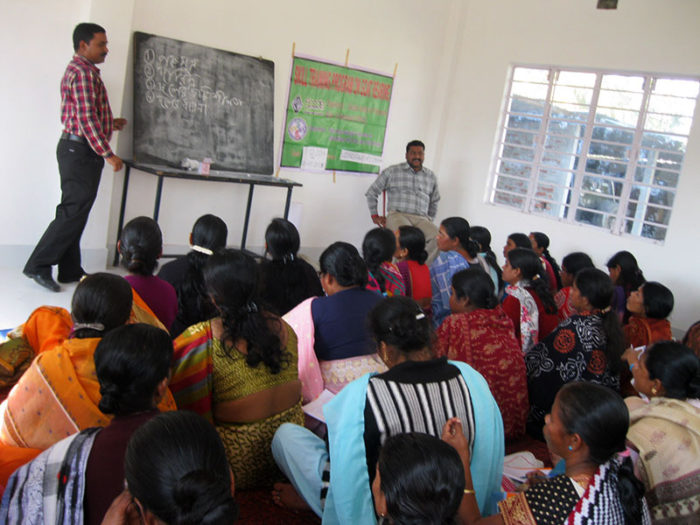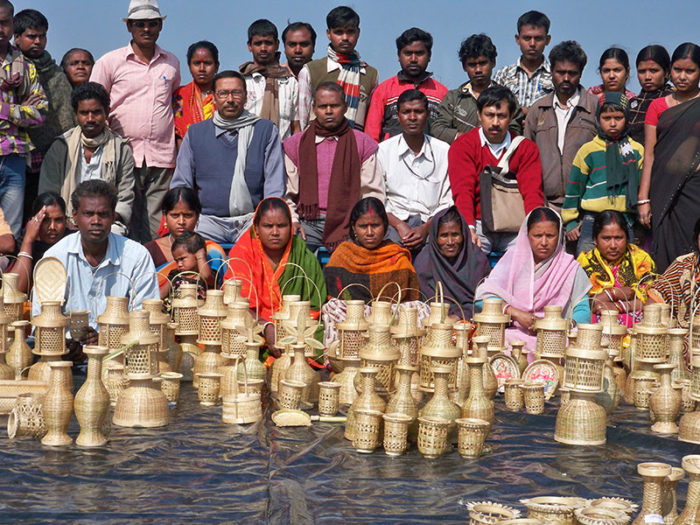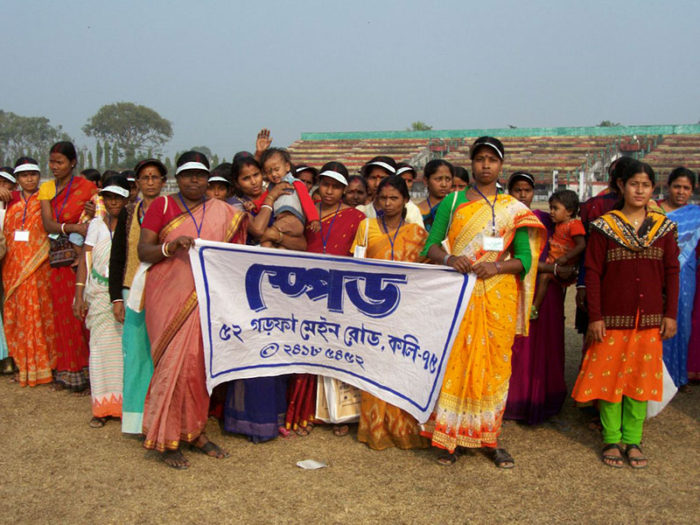Capacity Building – SPADE’s View
“Building capacity dissolves differences. It irons out inequalities.” – A. P. J. Abdul Kalam
“Man often becomes what he believes himself to be. If I keep on saying to myself that I cannot do a certain thing, it is possible that I may end by really becoming incapable of doing it. On the contrary, if I have the belief that I can do it, I shall surely acquire the capacity to do it even if I may not have it at the beginning. If I have the belief that I can do it, I shall surely acquire the capacity to do it even if I may not have it at the beginning.” ― Mahatma Gandhi
Capacity Building is planned development of or increase in knowledge, output rate, management, skills, and other capabilities of an individual and organization through acquisition, incentives, technology, and/or training.
It is the activities which strengthen the knowledge, abilities, skills and behaviour of individuals and improve institutional structures and processes such that the organization can efficiently meet its mission and goals in a sustainable way. Capacity development is the process whereby people, organisations and society as a whole unleash, strengthen, create, adapt and maintain capacity over time.
More popular is CCB or Community capacity building, also referred to as capacity development, is a conceptual approach to social or personal development that focuses on understanding the obstacles that inhibit people, governments, international organizations and non-governmental organizations from realizing their development goals while enhancing the abilities that will allow them to achieve measurable and sustainable results.
Community capacity building often refers to strengthening the skills, competencies and abilities of people and communities in developing societies so they can overcome the causes of their exclusion and suffering.
Fundraising, training centers, exposure visit, office and documentation support, on the job training, learning centers and consultants are all some forms of capacity building.
For capacity building programme we need human, scientific, technological, organizational, and institutional and resource capabilities.
Capacity Building – SPADE’s endeavour & potency
SPADE, reached out to different organizations in eastern India either by providing faculty support and /or organizing Capacity Building events, training sessions, exposure visits, leadership development programme for SHGs or their higher level institutions.
In its sincere efforts to alleviate poverty and empower the less privileged, building the capacity of the poor and the marginalised in the community has become imperative for SPADE. Growth cannot be thrust upon the people from outside, it has to be brought in from within the community by the community itself. And in order to support the people to develop their ability to support themselves especially women members of poor or marginalised families, SPADE has carefully cultivated the institutional culture. Self-help groups have emerged as instruments for integrating growth in livelihood and education, health and nutrition, safety and security. The Capacity Building Institute of SPADE is nurturing thousands of SHGs and their higher level institutions, like Sub Clusters, Clusters, Federations to hone up their “ability to perform functions, solve problems and achieve objectives” at three levels, individual, institutional and societal.
Initially in 2002, SPADE was involved in creating Capacity Building Support to selected SHPI partners for effective functioning of their micro-Finance activities. After gradual withdrawal of the support of CARE – West Bengal, the initiator, SPADE is emerging as a strong and self-sustaining Capacity Building Institution at the regional level covering West Bengal, Tripura, Meghalaya, Arunachal Pradesh, Assam. In order to make SHGs and their higher level institutions self-sufficient through introducing measures like member-specific Income Enhancement Plan etc. SPADE has designed a unique step by step approach.
Capacity Building Institution currently has about 30 trained and experienced faculty members who have conducted approximately 3600 training programmes covering more than 1,00,000 participants over the last seven years. In the year 2014 – 2015, SPADE covered more than 38,700 participants through various kinds of awareness, programmes, seminars, training programmes and facilitation support. This year the Capacity Building programmes have been sponsored by NABARD, Regional Office Kolkata; Panchayat and RD Dept. Govt of West Bengal; Ministry of SHG & SE Dept. Govt. of WB, and other NGOs, etc.
Capacity Building support is being provided in areas like Promotion and Management of SHGs and SHG based Institutions, Livelihood promotion through Institution Building, preparation of Income Enhancement Plans by the SHG members, Entrepreneurship and Organizational Development, Skill Training on Livestock, Sales & Marketing Practices for the SHGs, Bamboo Craft Training, Tailoring.








